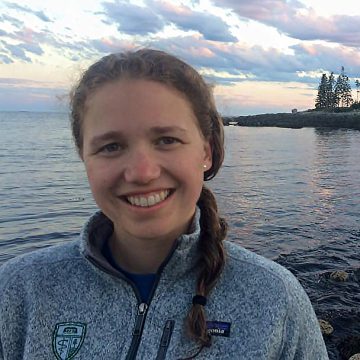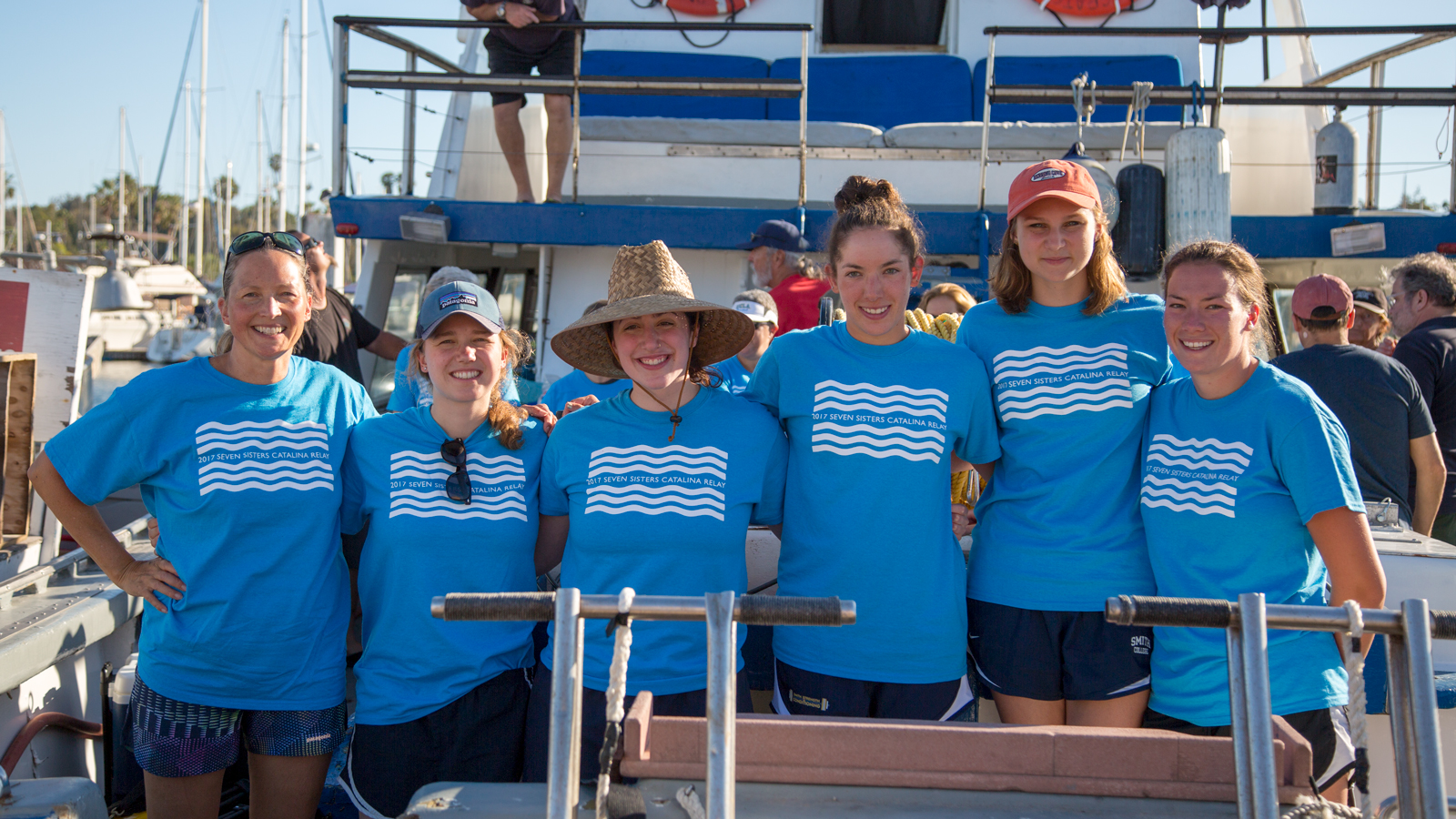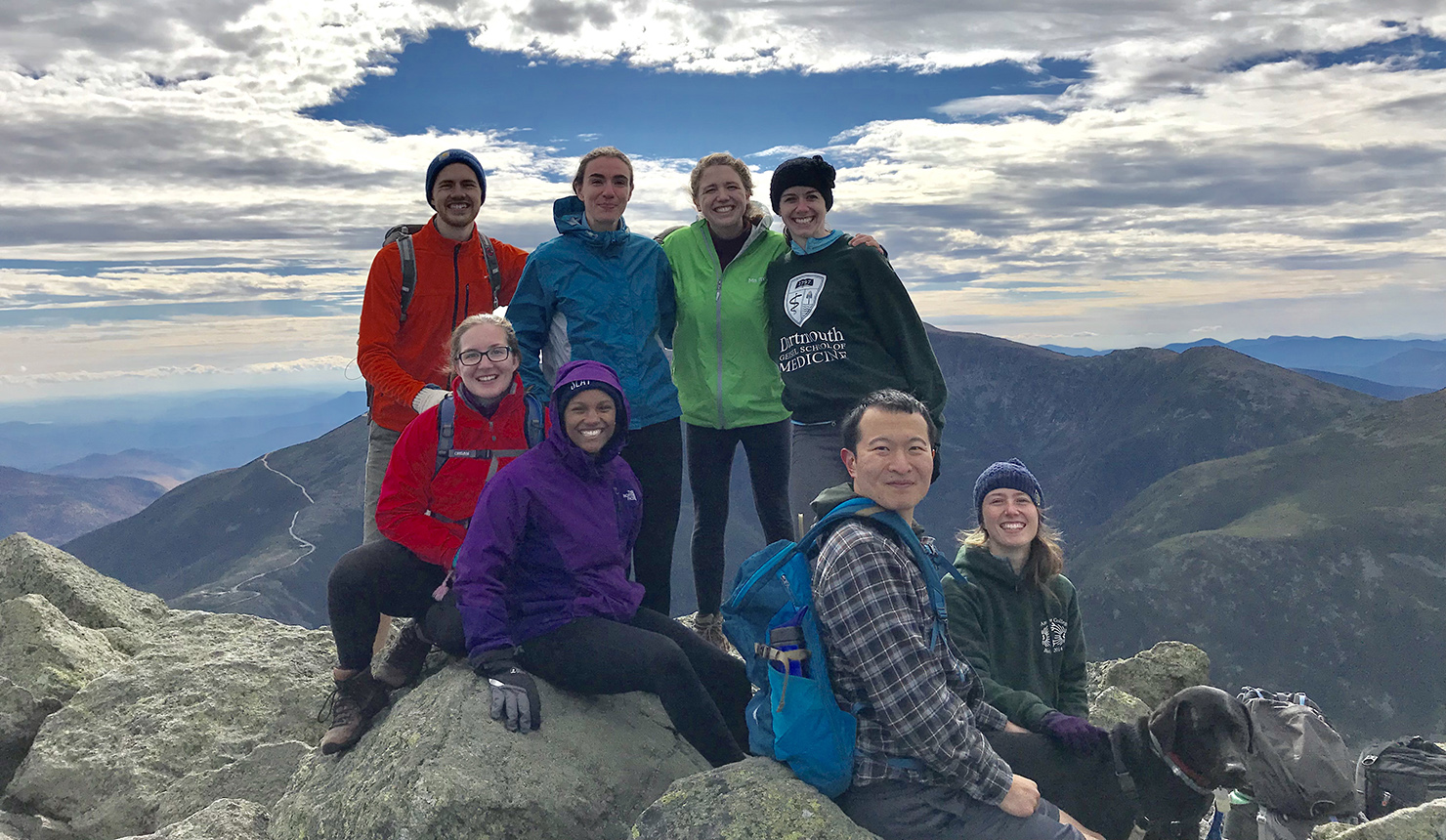
As an avid swimmer, one thing second-year Geisel School of Medicine student Ika Kovacikova loves about being back in Hanover is swimming at the Dartmouth pool, where she first learned to swim, and the Upper Valley Aquatic Center, where she is now a member of the center’s masters team.
Initially afraid to put her head underwater, Kovacikova started swimming when her mother decided the only way for her daughter to overcome her fear was to join a swim team. But in her first year on the team, the enterprising 7-year-old realized swimming the backstroke would keep her head above water, so she swam that stroke in every meet.
When she learned to put her head underwater—it changed her life.
Competitively swimming throughout high school and college, Kovacikova says, “Swimming has defined who I am. It has taught me to never ever, ever give up on a challenge, a skill I have relied on often in medical school, and one that I know will serve me well when I start taking care of patients.”
Growing up in Hanover as the child of scientists, she knew science would also play a significant role in her life, but it wasn’t until she went to college that public health captured her attention. At Wellesley College she created her own major—Health and Society —and spent four years examining the underpinnings of health disparity and how the social determinants of health impact outcomes. Following her junior year, she spent the summer at Chicago’s Rush University Medical Center as a health disparities research fellow working with David Ansell, MD, who was writing a book about health disparities in urban centers, The Death Gap.
“I shadowed him every Friday and saw how he was able to integrate medicine, science, and public health beyond diagnosis and treatment—he actively worked with community members helping them to organize and mobilize around a variety of problematic issues,” Kovacikova recalls. “I saw first-hand how medicine and public health complement each other—that’s when I decided to pursue medicine.”
But that wasn’t all Kovacikova decided to pursue. She also decided to swim the English Channel—a 22-mile open water swim between Dover, England and Calais, France.

She began a rigorous training schedule swimming twice a day, everyday. Her tenacity caught the attention of another swimmer who asked her why she was at the pool so often. She told him she was training for an English Channel swim then countered, asking him why he was there so often. He said he’d already swum the English Channel and was training for a Catalina Channel swim.
The meeting was fortuitous.
“He was a member of the Chicago Police Marine Department and was able to get us permission to swim in Lake Michigan, just past the Chicago skyline, so we trained together daily,” Kovacikova says. “In a city of 2.7 million people, it was a miracle that we met.”
At summer’s end she completed the English Channel swim in 11 hours, 28 minutes—nearly two hours under the average swim time.
And in summer 2017, after completing her first year of medical school, she was invited to participate in a 42-mile open water relay swim—a double-crossing from Los Angeles to Catalina Island. The team—five women all from Seven Sisters colleges—was the first all-female team to attempt the swim and they set the women’s record for a one-way crossing. Along the way, Kovacikova was accompanied by a school of dolphins, a mola-mola, and several jellyfish. “It was neat to approach this challenge as part of a team—without my teammates I would not have been able to swim at midnight in the Pacific Ocean. It’s really special to hold that record and share its success with other Seven Sisters swimmers,” she says.

Kovacikova, who enjoys the camaraderie of teamwork, recognized the parallel between medicine and team sports while preparing for medical school—she spent two years at Boston Children’s Hospital as a research assistant in a multidisciplinary team embedded in the hospital’s primary care clinic.
“The team makes the biggest difference,” she says, “It’s a necessary ingredient in addressing the social determinants of health.” And Geisel’s culture of interdisciplinary collaboration along with its focus on collegiality is what drew her to back to her hometown.
When she’s not swimming or studying, Kovacikova can be found introducing her classmates to the beauty of the region—she especially enjoys taking friends biking and on hiking trips in the White Mountains. Hiking is a wonderful way to get to know people because everyone has the same goal—reaching the top of the mountain, “and there’s nobody to talk to on a mountainside except each other,” she laughingly says.
“Having the opportunity to return here as an adult and being able to give back to the community has been special and fulfilling,” Kovacikova says. “The Upper Valley will always be near and dear to my heart.”
